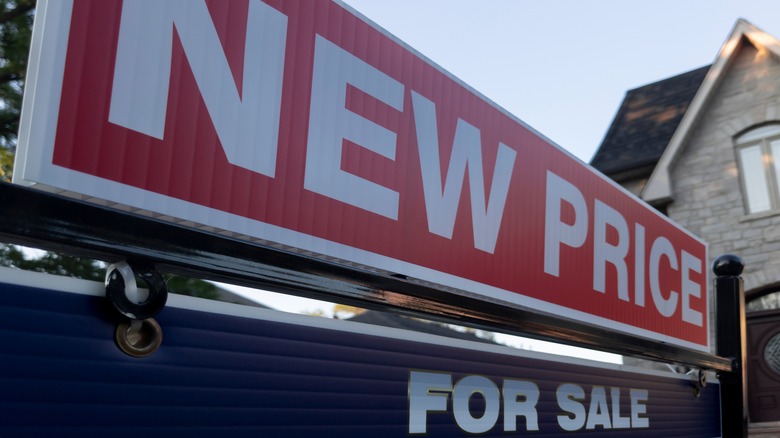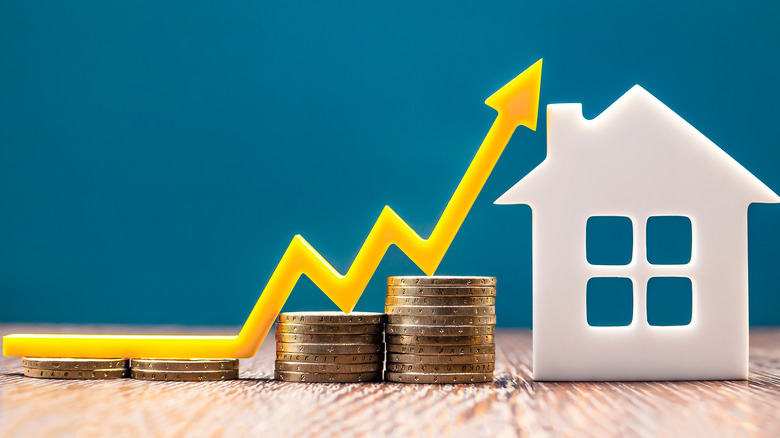Are The Warning Signs Of A Housing Bubble Burst Starting To Appear?
For individuals and families looking to buy a home or eyeing potential real estate investments, the landscape may look grim. In fact, the average price of a single-family home jumped nearly 19% in 2021 alone (via Yahoo!). Not to mention, the prices of existing residences that were once low during the pandemic have shot up due to inventory not being able to meet consumer demands. This is also because of supply chain issues and more and more people continuing to look for affordable housing instead of dealing with issues that stem from renting.
With this rollercoaster of pricing in such a short period of time, it begs the question: Is the housing market headed toward a bubble similar to 2004 (per Realtor.com)? Indeed, looking at any signs of a potential repeat may be worthwhile. Professionals who followed the housing bubble of the early 2000s share their insights into this matter, although some differ
about whether the nation is heading toward another run-up in housing prices.
The signs of a possible bubble
First, you need to understand what a housing bubble encompasses. According to Bankrate, the conditions involve a limited supply of housing to meet consumer demand, combined with a long period of low-interest rates that drives up sales. During the pandemic, there were plenty of potential buyers, but with the sharp decrease in new construction, the supply of new and existing homes couldn't meet demand.
During that time, interest rates had also dropped precipitously, which increased demand. In turn, this prompted more speculators to get into the buying game. At this point, consumer demand drove up prices at a speedy pace. This situation is referred to as a bubble because its rapid growth will eventually cause it to burst once interest rates rise and consequently drive down consumer demand. Moreover, prices will drop significantly as a result.
Hence, the next question is: Will the housing market crash because of interest rate hikes and the possibility of a recession? Per Bankrate, that may not necessarily occur. However, prices will decrease due to the Federal Reserve raising interest rates, but more than likely, won't take a dramatic tumble similar to the early 2000s. Furthermore, contractors and developers have stopped any new construction. Plus, today's average homeowner, as opposed to during the Great Recession, tends to keep a steady credit score, pays their mortgage on time, and has already established enough equity. Therefore, there's little danger of mass foreclosures.

